Reclaiming Ethics: Taha Abdurrahman and the Islamic Critique of Western Modernity
The encounter between Islamic tradition and Western modernity has given rise to a complex set of intellectual challenges. One such challenge concerns the tendency observable among some 20th- and 21st-century Muslim reformists to adopt Euro-American philosophical assumptions without adequate critical engagement. This has led, in certain cases, to what might be described as an unreflective transplantation of modern Western categories into Islamic discourse, particularly in fields such as political thought and ethics.
Movements associated with the Arab Nahda, for example, frequently turned to figures such as Ibn Rushd (Averroes), not necessarily for his theological commitments, but for his perceived compatibility with Enlightenment rationalism. While this turn to reason was often intended to revitalise Islamic intellectual life, it sometimes led to a form of Averroist revivalism that bypassed deeper Islamic ethical resources rooted in spirituality and metaphysics.
The Moroccan philosopher Taha Abdurrahman has responded to this trend with a far-reaching critique. In his view, the wholesale importation of Western modernity, particularly its epistemological and ethical assumptions, has contributed to a weakening of Islamic moral consciousness. Taha contends that modern secular reason, far from being a neutral framework, is historically shaped by a specific trajectory: the European Enlightenment and its accompanying project of colonial expansion. As such, it is not merely a system of thought but a structure of power that redefines human subjectivity, often at the expense of spiritual values.
Rather than rejecting modernity entirely, Taha calls for a re-centring of Islamic ethics through what he terms a process of moral renewal (tajdid akhlaqi), rooted in Qur'anic and prophetic sources. For him, ethics is not reducible to legalism or social utility but must be understood as a divine mandate that orients the human being toward both self-perfection and communal responsibility.
Taha Abdurrahman’s critique of modernity centres not only on its epistemological foundations but also on its moral implications. In his view, the Western conception of ethics, particularly as shaped by Enlightenment thought and colonial experience, tends to emphasise autonomy, utility, and human-centeredness. This approach, he argues, marginalises spiritual responsibility and reduces justice to the realm of legal or political calculation. As a result, modern ethical systems often operate without reference to metaphysical or divine accountability.
The Islamic concept of justice, in contrast, is a spiritually grounded responsibility. It recognises that behind the creation of every particle and atom in the universe lies a divine purpose. Thus, in Islam, the foundation of ethical values lies in the conviction that human beings will be held accountable for everything they interact with, use, or engage with throughout their lives, whether it be nature, fellow humans, or time itself, all of which are subject to the judgment of the Creator. The technical term that serves as the core of this ethical vision is Ihsan.
The Islamic moral framework does not advocate the Eurocentric concept of human dominion over other creations. Instead, it emphasises a responsibility where, alongside using these creations to meet human needs, their protection and welfare are also considered integral to human duty. The distinctiveness of this moral framework lies in the awareness that everything, including one’s own body, is a divine gift from Allah. Along with this realisation comes the recognition that believers will be questioned by Allah about how they have utilised these blessings. To overcome the existential crisis of modernity, which carries a violent connotation towards the self/identity, Taha proposes an alternative modernity.
Taha Abdurrahman’s philosophical project is grounded in a critique of modernity that draws from both Islamic intellectual traditions and contemporary critical theory. He identifies a historical continuity within Islamic thought, stretching back over a millennium, that offers an alternative to dominant Western epistemologies. Central to his critique is the notion that modern academic discourse, even within postcolonial studies, often remains entangled in the binary separation of fact and value, a feature inherited from Enlightenment rationalism.
Engaging with figures like Talal Asad, Taha acknowledges the significance of the discursive tradition but argues that it remains incomplete. Drawing on Saussure’s theory of signs, he suggests that many modern theorists neglect the religious and metaphysical dimensions of language, what he considers essential "signifiers" embedded in Quranic and Prophetic discourse. These signifiers, in his view, are inseparable from their sacred referents and cannot be abstracted into purely cultural or sociological terms. Taha labels the broader ethical dialogue that emerges from these signifiers as ḥiwār, a spiritually grounded form of discourse that transcends Western paradigms of debate or critique.
In this context, Taha introduces his vision of the “new human,” a concept rooted in the Islamic spiritual tradition rather than Enlightenment humanism. Unlike the modern subject, often characterised by autonomy, instrumentality, and control, the new human is formed through self-discipline, ethical refinement, and inner transformation. Moral excellence is not achieved through abstract theorisation but through repeated acts of virtue that become embedded in the soul. Over time, these acts cultivate a disposition grounded in sincerity, humility, and responsibility.
At the heart of this ethical formation is the Islamic concept of ḥayāʾ, a rich, multilayered term often translated as “modesty,” though it encompasses a broader ethos of reverence, humility, and self-restraint. For Taha, ḥayāʾ is not merely a social virtue but a theological stance: it reflects the awareness of one’s position before the Divine and fosters a relational ethics that resists domination and exploitation. The “new human,” therefore, is not one who asserts mastery over others but one who lives in accordance with eternal principles, embodying the moral vision entrusted by the Creator.
Taha Abdurrahman: Education and Intellectual Trajectory
Born in 1944 in El Jadida, Morocco, Taha Abdurrahman began his early education in Casablanca, where his literary interests initially drew him toward poetry. In the early 1960s, he joined the Moroccan Writers’ Union, reflecting a deep engagement with creative expression. However, the events of the 1967 Six-Day War served as a turning point, pushing him to reconsider the limitations of literary expression in addressing the broader ethical and existential questions facing the Muslim world. This led him to pursue formal philosophical study at Mohammed V University in Rabat, and later at the Sorbonne in Paris, where he obtained his first doctorate in 1972, followed by a Doctorat d'État in 1985.
Taha was deeply committed to engaging with philosophical texts in their original languages, a commitment that led him to master Arabic, French, English, German, Latin, and Greek. From 1970 until his retirement in 2005, he served as a professor of logic and philosophy of language at Mohammed V University in Rabat. During the 1970s and 1980s, as the university became a hub for leftist and liberal intellectual trends, Taha’s traditionalist orientation often placed him at odds with prevailing academic currents. Despite this isolation, he continued to develop a distinct intellectual path that combined Islamic ethical thought, particularly rooted in the Sufi tradition, with the rigour of analytical logic and philosophical inquiry.
Taha’s contributions have earned him numerous accolades, including the Moroccan Book Prize (twice) and the ISESCO Award for Islamic Philosophy. Beyond Morocco, he has held visiting professorships at institutions such as Al-Bayt University in Jordan, the University of Sfax in Tunisia, and the University of Constantine in Algeria. He also leads the "Wisdom Forum for Thinkers and Researchers" and is affiliated with international organisations such as the International Society for the Study of Argumentation, the Society for Intercultural Philosophy in Germany, and Baghdad’s Bayt al-Hikma.
By the age of 35, Taha had published his first academic monograph in 1979, and his scholarly output has continued steadily since, with over 29 books to his name. In 2021, a French publication listed him among the 35 most influential contemporary thinkers, an acknowledgement of his growing impact in global philosophical circles.
Taha’s philosophical approach places Islamic ethics at the centre of intellectual life. He is sharply critical of the tendency among modern Muslim scholars to replicate Western epistemological models, especially the revival of Averroism, which he views as an uncritical reproduction of Aristotelian thought. For Taha, the reliance on Greek metaphysics has distanced Islamic thought from its own foundational sources. While he respects the intellectual legacy of figures like Imam al-Ghazali, he particularly values their efforts to confront Greek philosophy through established Islamic disciplines such as Usul al-Fiqh.
Central to Taha’s thinking is the idea that human beings are, first and foremost, moral agents. Against the Greek notion of humans as primarily rational or political animals, he argues that morality is inseparable from religious consciousness. In his 2000 work Suʾāl al-Akhlāq (The Question of Ethics), he asserts: “There is no human without morality, and there is no morality without religion; therefore, there is no human without religion.” This ethical vision, anchored in divine accountability, defines the core of his intellectual contribution.
About the author:
Muhammed Mishab KP is a final year PG scholar at Darul Huda Islamic University, specialising in Quran and related Sciences. He holds a background in Sociology with a strong focus on Arabic grammar and Islamic thought. With a keen interest in contemporary Islamic thought and design, they actively contribute to research and community initiatives. Passionate about engaging with current issues through an Islamic lens, they write to bridge the gap between tradition and modernity.
REFERENCES
- Mohammed Hashlar, Al-Ḥiwār al-Akhlāqī ʿinda Ṭaha ʿAbd al-Raḥmān
- Taha Abdurrahman, Suʾāl al-Akhlāq [The Question of Ethics]
- Mohammed Hashlar, “Ṭaha ʿAbd al-Raḥmān wa-l-Mashrūʿ al-Akhlāqī”
- Abdessalam Cheddadi, “Modernity and Identity in Moroccan Thought,” in Intellectual Traditions in Islam.
Disclaimer
The views expressed in this article are the author’s own and do not necessarily mirror Islamonweb’s editorial stance.

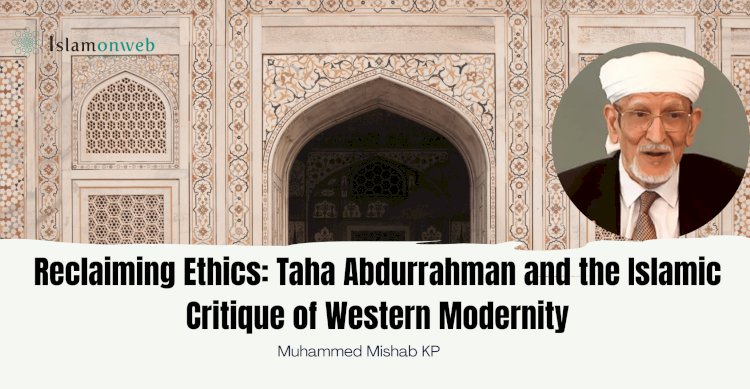


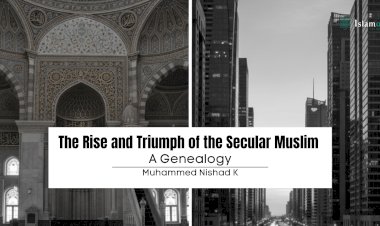
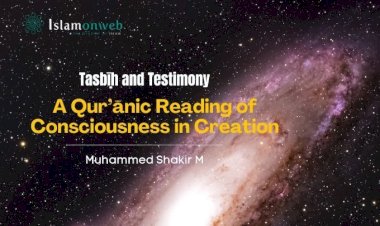

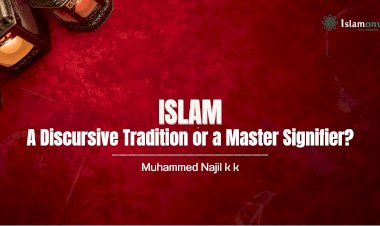
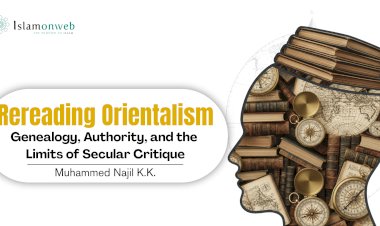
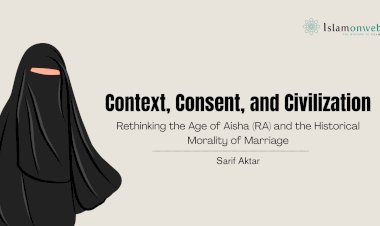














Leave A Comment